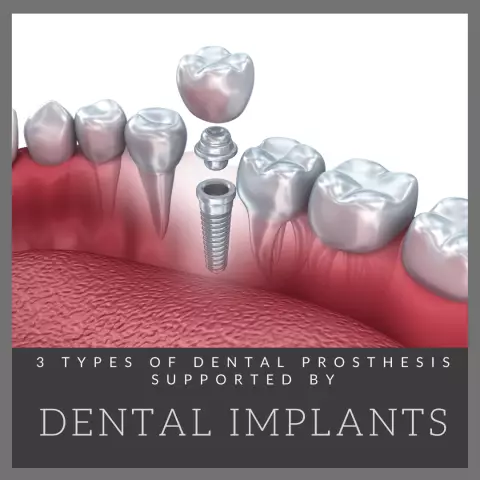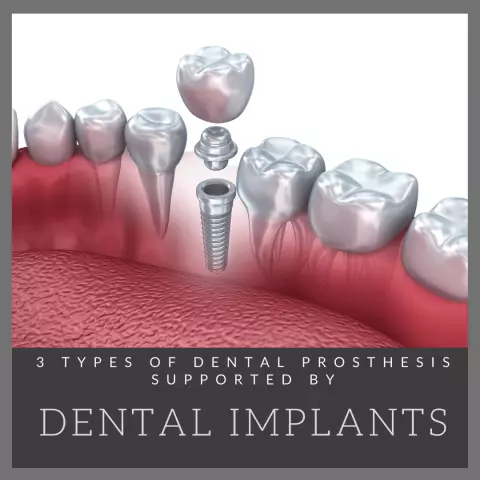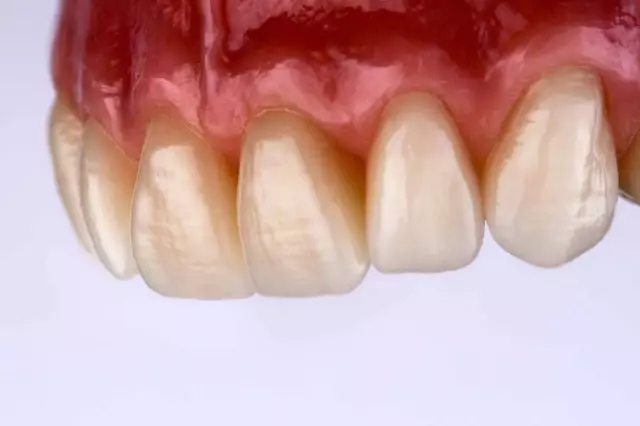- Author Rachel Wainwright [email protected].
- Public 2023-12-15 07:39.
- Last modified 2025-11-02 20:14.
Types of dental prosthetics
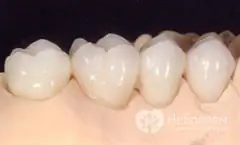
The restoration of lost teeth is important not only in aesthetic terms, but also in terms of health, primarily the health of the gastrointestinal tract. A person with a large defect in the dentition cannot chew food qualitatively, which is why it enters the stomach in a state of a poorly formed food lump, is not digested successfully enough, irritates the walls of the gastrointestinal tract - and now the person has a disturbed whole digestive process, on which health and organism as a whole.
Scientists say that in the near future it will be possible to grow teeth in the laboratory and then implant them in a patient, or to grow lost teeth directly in the jaw, but so far these are only areas of scientific activity, far from practice. To date, there is only one way to compensate for defects in the dentition - by resorting to various types of prosthetics. There are several types of dental prosthetics, which can be divided into two groups: removable and fixed prosthetics.
Types of fixed prosthetics: prosthetics with dental crowns, bridges, dental implants. This type of prosthetics is most convenient for the patient, of course, subject to the high quality of work, since it allows you to solve the problem with lost teeth for many years, and sometimes tens of years, while special care of the prostheses is not required, it is enough to observe normal oral hygiene. The disadvantage of this type of dental prosthetics is that a fixed prosthesis can close only a small defect in the dentition.
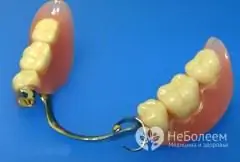
To slightly expand the possibilities of fixed prosthetics allow dental implants - prostheses fixed on a titanium rod, which is implanted into the bone tissue. However, this type of prosthetics also has disadvantages, first of all it is a rather high price, the need for surgical intervention, as well as a rather long time that the procedure takes due to the need to wait for the complete healing of tissues.
Removable types of dental prosthetics include full or partial removable prosthetics, as well as clasp prosthetics. Their advantage is a relatively low price, no overload of the remaining teeth with prostheses. The disadvantages were previously attributed to the low aesthetic properties of this type of prosthetics, but now, due to the emergence of new materials and technologies, this problem has been solved. The disadvantage is the need for special care of the prostheses, as well as their periodic correction or replacement.
Found a mistake in the text? Select it and press Ctrl + Enter.

